Once upon a time in the land of Egypt, the people were burdened by the oppressive rule of the cruel and malevolent god Set. The entire nation was shrouded in darkness, as Set's reign brought nothing but suffering and despair. It was during these dark times that the benevolent god Horus, the divine embodiment of the sky and the rightful ruler of Egypt, decided to come to the aid of his people.
The tale of Horus' intervention in the lives of the Egyptians began with a young farmer named Amun. Amun was a hardworking and pious man who prayed daily to Horus for guidance and protection. One fateful day, as Amun was working in his field, a falcon appeared and perched on a nearby tree. Amun recognized the falcon as a symbol of Horus and decided to follow it, for he believed it was a sign from the god himself.
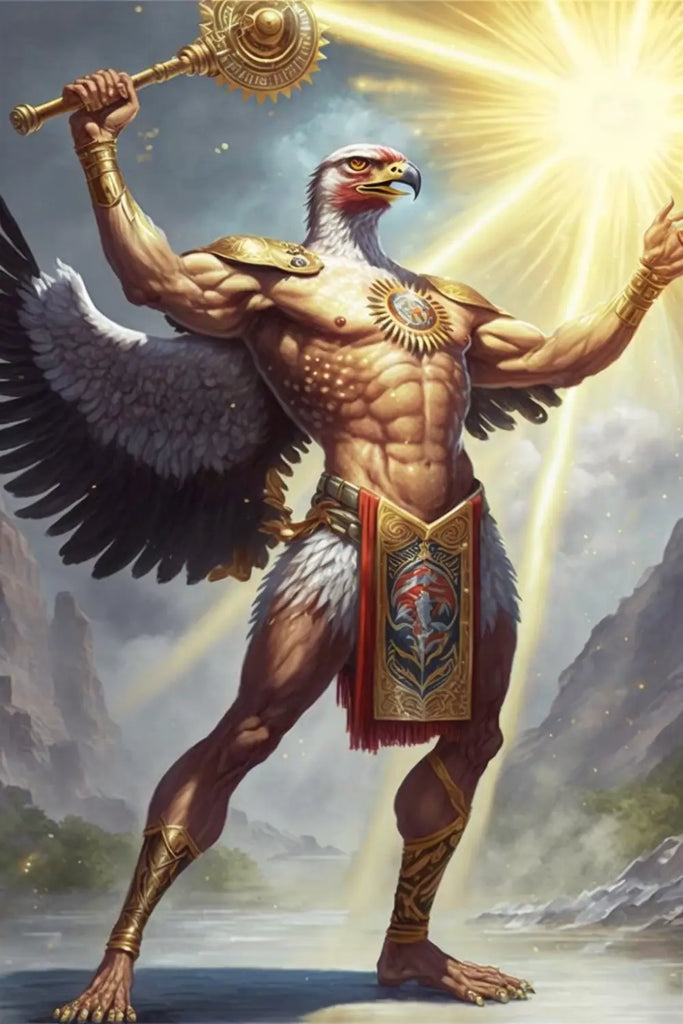
As the falcon soared through the skies, it led Amun to a hidden temple dedicated to Horus. Inside, Amun discovered an ancient prophecy inscribed on the temple walls. The prophecy foretold the return of Horus, who would liberate Egypt from Set's tyranny and restore peace and prosperity to the land.
Inspired by this revelation, Amun gathered a group of loyal followers and embarked on a quest to find the Eye of Horus – a powerful artifact said to hold the key to summoning the god. Their journey took them through treacherous deserts, where they faced fierce sandstorms and venomous creatures. Along the way, they encountered other weary travelers who had also been guided by the falcon, and together, they formed a united force determined to bring hope back to Egypt.
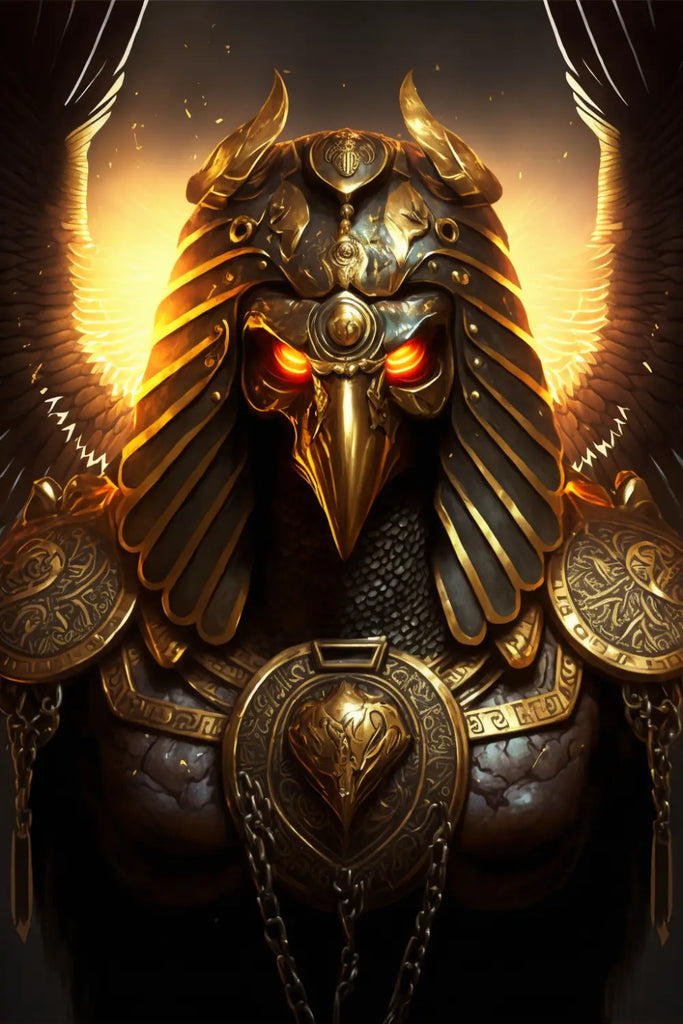
After many trials and tribulations, Amun and his companions reached the fabled city of Waset, where the legendary Eye of Horus was believed to be hidden. They searched tirelessly, and in the heart of the city's grand temple, they finally found the sacred artifact. With the Eye of Horus in their possession, they returned to the hidden temple to perform the ritual that would summon the god himself.
As they chanted ancient incantations, the Eye of Horus began to glow with an otherworldly light. The ground beneath them trembled, and suddenly, the majestic figure of Horus appeared before them. With his piercing gaze and mighty wings, he commanded the presence of a true god. Amun and his followers fell to their knees in awe and pledged their loyalty to the divine being.
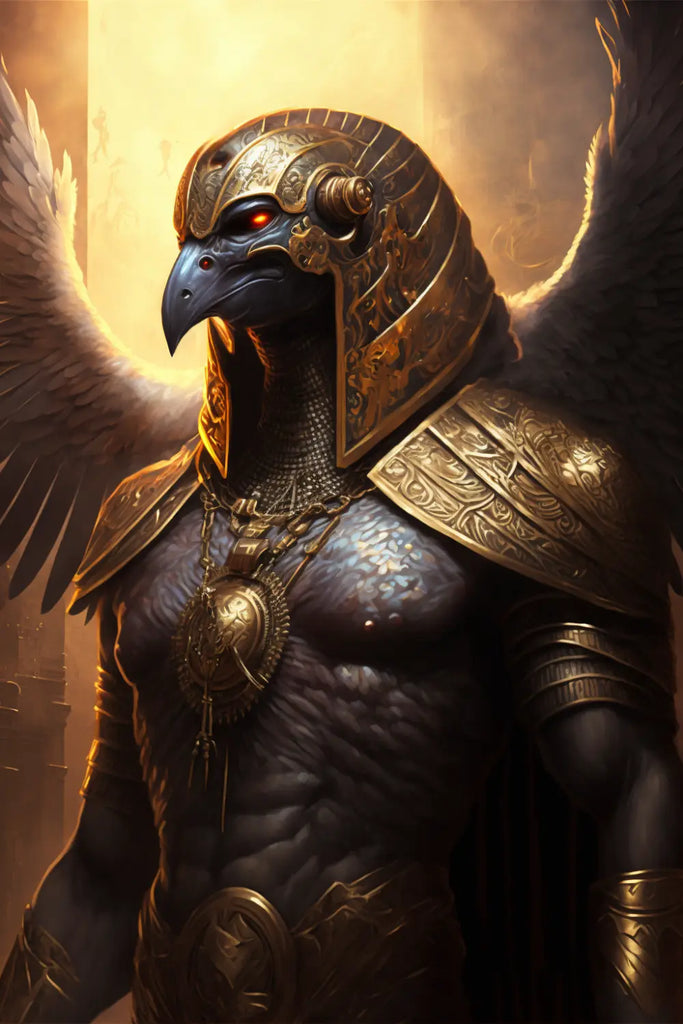
Horus acknowledged their devotion and vowed to help them overthrow Set and restore Egypt to its former glory. In preparation for the upcoming battle, Horus granted Amun and his companions extraordinary powers, transforming them into his trusted guardians. He also gifted them with magical weapons, forged by the god Ptah himself, which would aid them in their struggle against Set's forces.
The day of the great battle arrived, and the forces of Horus marched to confront Set and his army of darkness. The clash of divine powers shook the earth, as Horus and Set engaged in an epic duel for the fate of Egypt. While Amun and his fellow guardians fought valiantly against Set's minions, Horus and Set soared through the skies, locked in a fierce battle that would determine the course of history.
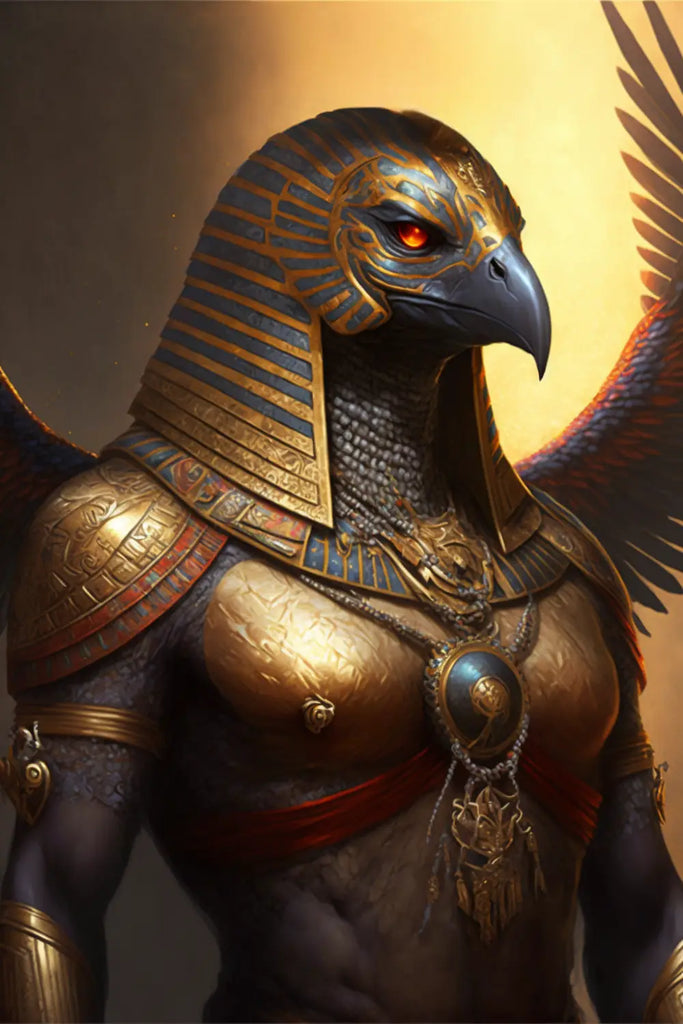
In the end, Horus emerged victorious, striking a decisive blow against Set and banishing him to the depths of the underworld. With Set's influence gone, the darkness that once shrouded Egypt began to dissipate, and the land gradually returned to its former state of peace and prosperity.
Horus, the rightful ruler of Egypt, was reinstated as the supreme god, and thepeople rejoiced in his benevolent reign. Under Horus' guidance, Egypt flourished, and its citizens basked in the god's protection and wisdom. Amun and his fellow guardians became revered heroes, celebrated for their courage and dedication to their divine mission.
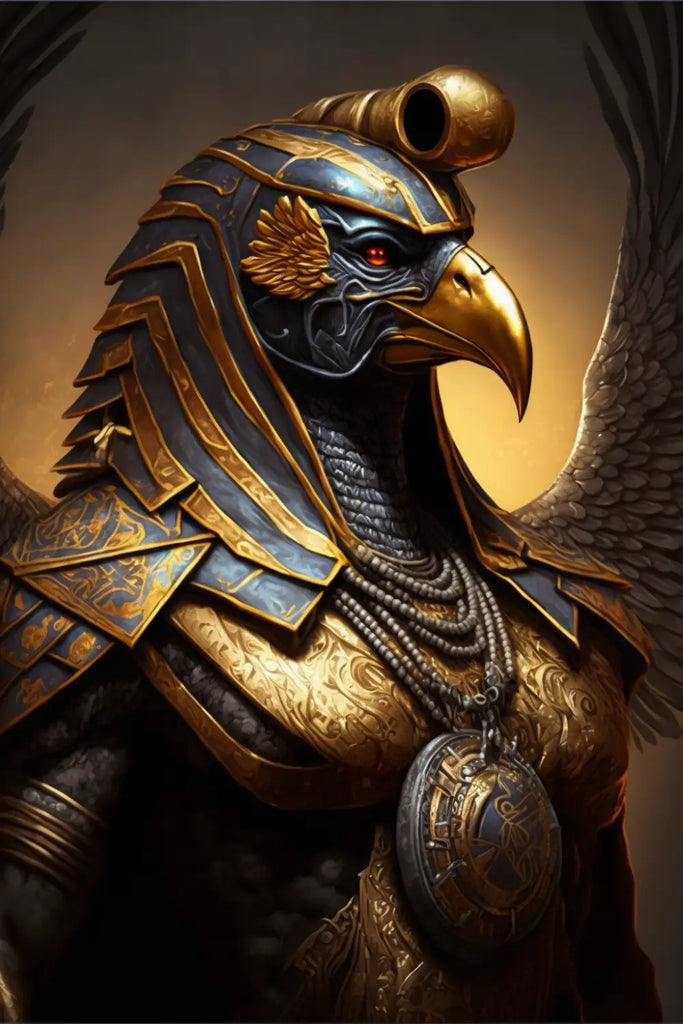
As a reward for their unwavering loyalty, Horus granted Amun and his companions immortality, allowing them to continue serving as protectors of Egypt for generations to come. They became symbols of hope and inspiration for the people, reminding them of the power of unity and faith in the face of adversity.
The once-oppressed Egyptians embraced the teachings of Horus, focusing on justice, truth, and harmony. With the god's wisdom, they constructed great temples and monuments in his honor, leaving behind a legacy that would stand the test of time. The land that had once been shrouded in darkness now prospered under the divine light of Horus, the guardian of Egypt's legacy.
As the tale of Horus and his intervention in the lives of the Egyptian people spread, so did the belief in his power and the virtues he represented. The story of Horus, Amun, and the guardians became a cornerstone of Egyptian mythology, inspiring countless generations to uphold the values of justice, truth, and harmony.
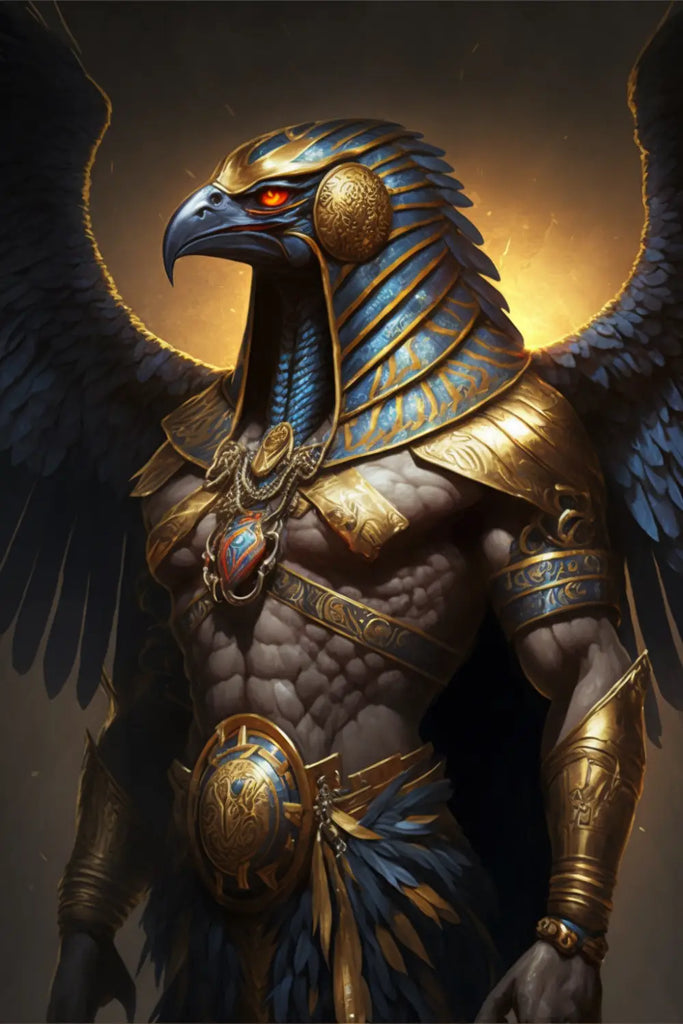
In the present day, the sacred tale of Horus continues to captivate and inspire. The god's enduring legacy serves as a testament to the strength of the human spirit and the power of faith to overcome even the darkest of times. By sharing this captivating tale with the world, we ensure that the lessons learned from the struggle against Set's tyranny continue to guide us towards a future of peace, prosperity, and unity.
So ends the sacred tale of Horus: Guardian of Egypt's Legacy – a timeless story of hope, courage, and the triumph of good over evil. Let this tale serve as a reminder to us all of the power of unity and the importance of standing up against tyranny, for only then can we truly ensure the lasting prosperity of our world.
















